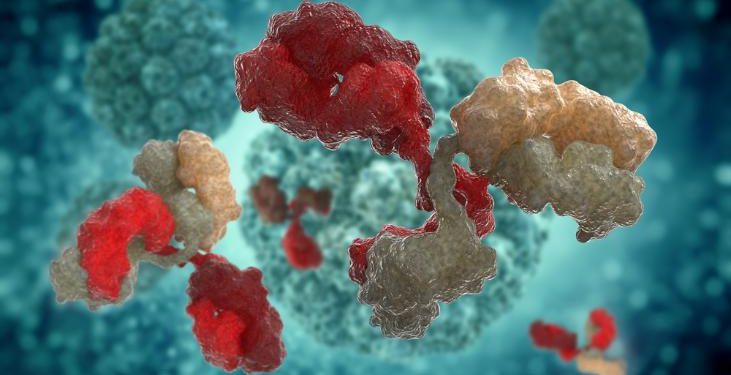Some people want to know their prognosis, or how long they may live with colon cancer. Others prefer not to hear this information.
Doctors usually express colon cancer outlook in terms of a 5-year relative survival rate. But other factors also affect a person’s outlook, like how well their cancer responds to treatment.
Symptoms
In this stage, colon cancer has spread beyond the lining of your colon or rectum to nearby tissues and organs. Cancer in this stage can cause many symptoms, including pain that doesn’t go away and bowel problems like diarrhea or constipation. Cancer at this stage may also have spread to your liver and lungs.
Most people with stage 4 colon cancer are older than age 50. They might have a family history of colorectal cancer or inflammatory bowel disease (IBD). Your risk increases as you get older. Regular screenings can help find colon cancer before it causes symptoms.
At this stage, colon cancer is harder to treat than earlier stages. But treatment can ease symptoms and prolong life. It’s important to talk with your healthcare team about how you want to live your life with colon cancer and what goals you set for your treatment.
The 5-year survival rate for stage 4 colon cancer is about 13%. That’s what doctors call relative survival rate. It compares your chances of living for 5 years after you get a diagnosis with the chance that someone who doesn’t have colon cancer would live for that long. The rates in this section come from the Surveillance, Epidemiology and End Results (SEER) database.
Doctors diagnose stage 4 colon cancer by taking a sample of tissue from the area where the cancer is located. They can also use imaging tests to check if the cancer has spread. For example, they might use a computed tomography scan, magnetic resonance imaging or positron emission tomography (PET) scan. They might also test your blood for carcinoembryonic antigen, a protein made by cancer cells.
If the cancer hasn’t spread, doctors might recommend surgery and chemotherapy. Chemotherapy uses drugs to kill cancer cells and stop them from spreading. They might give you systemic chemotherapy, which is taken by mouth or intravenously. They might also recommend targeted therapy or ablation, which uses heat to destroy cancer cells.
If the cancer has spread to your lungs or liver, your doctor might need to remove parts of those organs. They might also remove lymph nodes near the site of the cancer.
Diagnosis
When colon cancer spreads beyond the colon, it’s stage 4. It is the most advanced stage of colorectal cancer and has a lower survival rate than colon cancer that hasn’t spread. The five-year survival rate is about 13% for people with metastatic colon cancer.
Doctors use the TNM system to describe the stage of colon cancer. The T describes how deep the tumor is, the N describes whether it has spread to nearby lymph nodes and the M describes whether the tumor has reached other structures in your body, such as the liver. Your doctor will use the results of your lab and imaging tests to find out your stage of colon cancer.
Your doctor will give you a treatment plan based on your stage of colon cancer and where it has spread. The goal is to help you live longer and with less pain, even if the cancer can’t be cured. Your doctor may recommend surgery, chemotherapy or targeted therapy. Targeted therapies use drugs that attack specific proteins inside cancer cells without harming healthy cells. Examples of these drugs include chemotherapies, such as fluorouracil (5-FU) or doxorubicin (Adriamycin). Also, doctors may prescribe VEGF inhibitors, such as bevacizumab (Avastin) or ramucirumab (Cyramza), to prevent new blood vessels from growing and feeding the cancer.
If your colon cancer has spread to the liver, lungs or other organs, it is considered metastatic colon cancer. These cancers are hard to treat and have a poorer prognosis than colon cancer that hasn’t spread.
The best way to prevent colon cancer is with regular screenings, which can find and remove precancerous polyps before they turn into cancer. Talk to your doctor about when you should start screening and how often you should have it done. Also, if you have a family history of colorectal cancer or other risk factors, you should get screened at a younger age. The earlier cancer is found, the easier it is to treat. You may also want to ask your doctor about participating in a clinical trial. These studies offer the chance to receive brand-new medical treatments and contribute to further research.
Treatment
Treatment options for stage 4 colon cancer are less effective than in earlier stages, but they can prolong life and relieve symptoms. Generally, the goal is to improve quality of life rather than cure the cancer. It’s important to talk with your doctor about your goals and preferences.
The type of treatment used depends on the location and spread of the tumors. Surgery may involve removing part of the colon and nearby lymph nodes. Doctors may also use chemotherapy before or after surgery, or both.
Your doctor will likely order a series of diagnostic tests to find out how far your cancer has spread. These include blood and urine tests, a CT scan of the abdomen, an ultrasound exam of your liver, and a positron emission tomography (PET) scan, which measures metabolites that cancer cells produce.
Once the cancer has spread to distant organs, it’s usually too late for surgery to cure it. But your doctor may recommend other treatments to help you live longer, including chemotherapy, radiation therapy, and biologic agents that target cancer cells and inhibit their growth or kill them.
Your physician will often monitor your condition with regular visits and laboratory tests to check for the return of cancerous cells or new symptoms. They’ll also discuss the best way to manage your discomfort and care for any other health problems you have, such as heart disease or diabetes.
Because of the limited treatment options, doctors rarely cure colon cancer that has spread to other parts of the body at this stage. However, the sooner you’re diagnosed and treated for colon cancer, the greater your chances of a better outcome. It’s important to get routine screenings to catch precancerous polyps before they turn into colon cancer. Also, if you notice symptoms of colon cancer that don’t go away, call your doctor right away. If you’re interested in trying a new therapy, ask your doctor about clinical trials for advanced colon cancer that are open to you. These studies test experimental approaches to preventing, diagnosing, and treating cancer. Talk with your doctor about the pros and cons of participating in a clinical trial.
Prognosis
The outlook (prognosis) for someone with stage 4 colon cancer depends on how far the disease has spread and the type of tumor. Your doctor will tell you how long he or she thinks you might live. It’s important to talk with your doctor about your personal goals for treatment and what your expectations should be.
The goal of cancer treatment is to extend life and improve your quality of life. This is called palliative care. During this time, you may receive treatment to relieve symptoms.
At this stage, your cancer is likely to have spread beyond your colon into tissues and organs that line your abdomen and that surround your large intestines. Your cancer has likely reached other areas of the body through your blood and lymphatic systems. Doctors call this spreading to other parts of the body metastasis.
Typically, people with stage 4 colon cancer have more advanced disease than those in earlier stages. As a result, they are more likely to experience complications and have a poorer prognosis.
Your doctor will use the information from your medical history, tests and procedures to estimate your risk of survival and make treatment recommendations. Your doctor will base these predictions on your medical condition and the experience of other patients with similar conditions.
To learn about the five-year relative survival rate for your specific condition, ask your doctor to refer you to a specialist in colon and rectal cancer or to another appropriate health professional. Your doctor may also suggest that you join a clinical trial. These studies give you the opportunity to receive brand-new treatments and contribute to medical research.
For people with stage 4 colon cancer, doctors can usually remove all or part of the impacted area through surgery. The procedure used depends on the location of the tumor and how far it has spread. For example, your doctor may recommend a colectomy, in which he or she removes the affected area of the colon and nearby lymph nodes. This procedure can be used to treat both simple and complex cancers.









